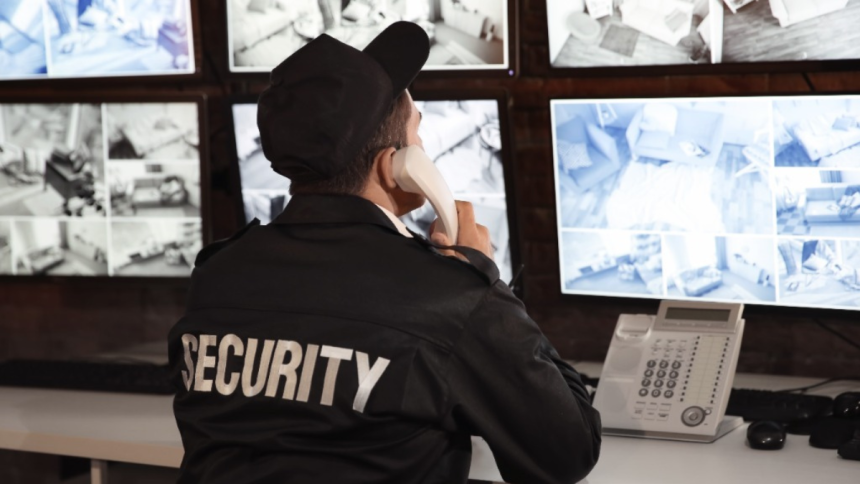When you’re managing a team of security guards, you know the job goes far beyond filling a schedule. From tracking certifications to handling time-off requests, your HR responsibilities can get complicated quickly.
Technology can help you cut through the noise and focus on what matters: supporting your staff and keeping things running smoothly. If you’re still doing everything with spreadsheets or piles of paper, it’s time to take a closer look at how tech can simplify your Security guard HR management tasks.
Simplifying Staff Scheduling and Shift Management
You’re probably all too familiar with the chaos of last-minute callouts or trying to coordinate overlapping shifts. Technology steps in by giving you access to smart scheduling tools.
These platforms can automatically match availability with staffing needs and alert you when there’s a conflict. Instead of calling every team member individually, you can send shift updates through a single tap.
Automated scheduling systems also allow guards to view, accept, or swap shifts directly from their phones. This puts some power back in their hands while giving you a clear overview of who’s working when.
You can also monitor overtime trends and stay within payroll budgets without second-guessing your math. It’s less back-and-forth, fewer misunderstandings, and more time to focus on your actual job.
Tracking Certifications and Compliance Requirements
In security guard HR management, staying compliant is non-negotiable. Whether it’s CPR certification, firearm licenses, or state-specific training, there’s a lot to keep track of. If one of your guards is missing a required document, that’s a liability waiting to happen.
Instead of digging through filing cabinets or endless spreadsheets, tech tools let you centralize all compliance data. You can set automatic reminders for upcoming renewal dates, attach digital copies of licenses, and even generate reports for audits in just a few clicks.
When you’re managing a large team across multiple sites, this kind of visibility is critical. It gives you peace of mind and helps protect your company from serious legal issues.
Streamlining Onboarding and Training
Bringing new guards into the fold is more than handing over a uniform and a badge. They need to understand your company’s expectations, procedures, and culture. With the right digital tools, you can create a consistent onboarding experience that starts before the first shift.
Online training platforms allow you to assign modules, track progress, and test knowledge before anyone steps onto a post. You can upload policies, walkthroughs, and videos, making information easy to access and retain.
This approach saves time and ensures every guard receives the same level of instruction. When your training process is repeatable, you’re less likely to miss necessary steps, and new hires feel more prepared to do their job right.
Improving Communication Across Teams
You already know how communication breakdowns can lead to missed shifts, late arrivals, or even security lapses. Technology helps eliminate these gaps. Messaging apps, push notifications, and real-time updates keep your entire team connected, without needing to chase down texts or missed calls.
Some platforms let you send announcements to the entire team or direct messages to individual team members. You can even log communication history, which helps if you ever need to reference instructions or conversations later.
Whether you’re updating protocols, reminding staff of a site change, or handling a conflict, streamlined communication tools help you do it more quickly and clearly.
Managing Performance and Building Accountability
It’s hard to know how your team is doing without a way to track their performance, but digital reporting tools are here to help. You can log incidents, attendance, and post inspections in real time, giving you a better picture of each guard’s contributions.
Over time, this data helps you spot patterns—such as who consistently shows up early, who is frequently late, or who has been involved in multiple issues. You can use this insight to inform promotions, assign shifts strategically, or address concerns before they escalate.
When guards know their work is being monitored and valued, they’re more likely to stay motivated and take ownership of their role.
Security guard HR management is already a demanding job. You juggle people, policies, and unpredictable situations every day. But with the right tech tools, you don’t have to do it all manually. You can track training, simplify schedules, communicate clearly, and keep records organized—without adding to your workload.
Lynn Martelli is an editor at Readability. She received her MFA in Creative Writing from Antioch University and has worked as an editor for over 10 years. Lynn has edited a wide variety of books, including fiction, non-fiction, memoirs, and more. In her free time, Lynn enjoys reading, writing, and spending time with her family and friends.















